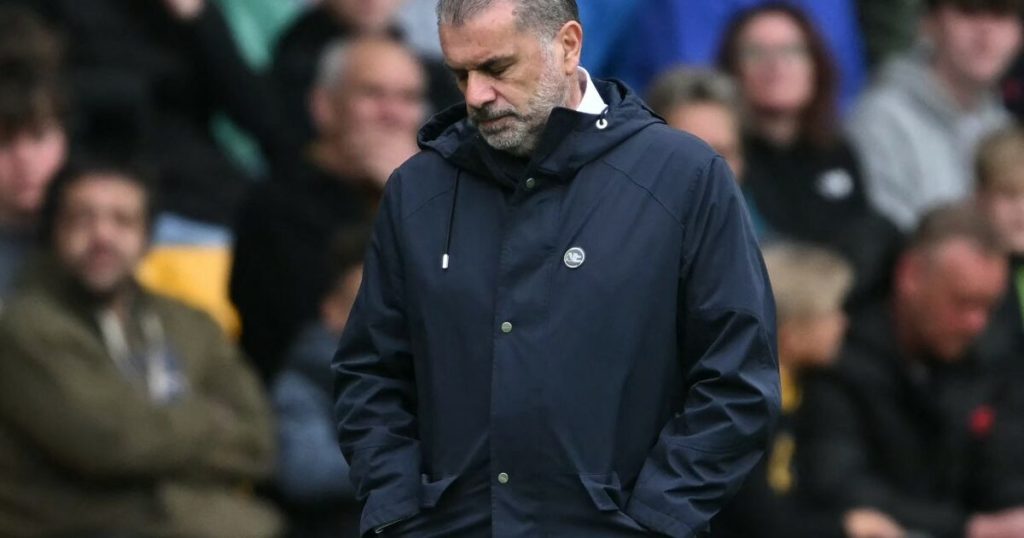Ange Postecoglou’s abrupt departure from Tottenham Hotspur after just two seasons at the helm has left the football world in a state of bewilderment. While his tenure was marked by a stark contrast between European triumph and domestic struggle, the Australian manager’s impact, particularly in revitalizing the club’s spirit and delivering a long-awaited trophy, is undeniable. Captain Son Heung-min’s heartfelt tribute underscores the deep respect and admiration Postecoglou garnered within the squad, painting a picture of a manager who instilled belief and fostered a winning mentality despite external pressures and doubters. The circumstances surrounding his sacking raise questions about the club’s long-term vision and the pressures managers face in the demanding world of elite football.
Postecoglou’s legacy at Tottenham will forever be intertwined with the Europa League victory, a shining beacon amidst a turbulent domestic campaign. His tactical approach, characterized by attacking football and a focus on developing young talent, resonated with the players and brought a renewed sense of optimism to the club. Despite the heavy toll of injuries and the challenging Premier League schedule, Postecoglou prioritized the Europa League, a gamble that ultimately paid off with a historic triumph against Manchester United. This victory, Tottenham’s first piece of silverware in 17 years and their first European trophy in 41 years, secured Champions League football for the following season, a testament to Postecoglou’s strategic acumen and unwavering commitment.
However, the jubilation of European success was overshadowed by a dismal Premier League performance. Tottenham’s 17th-place finish, their worst since relegation in the 1976-77 season, exposed the fragilities within the squad and raised concerns about the team’s ability to compete consistently on multiple fronts. The 22 losses out of 38 games painted a stark picture of inconsistency and defensive vulnerabilities, ultimately proving to be Postecoglou’s undoing. While the focus on the Europa League may have contributed to the domestic struggles, the sheer number of defeats raises questions about the overall balance and depth of the squad.
Son’s emotional tribute offers a glimpse into Postecoglou’s leadership style and his profound impact on the players. The South Korean captain, having witnessed a revolving door of managers during his time at Tottenham, highlights Postecoglou’s unwavering belief in the team’s potential, even during periods of adversity. The manager’s trust in Son, appointing him captain, signifies the strong bond they forged and the respect Postecoglou commanded within the dressing room. Son’s words echo the sentiments of a player who not only benefited from Postecoglou’s tactical guidance but also grew as a leader and an individual under his mentorship.
The sudden dismissal of Postecoglou raises questions about the decision-making processes within Tottenham Hotspur and the pressures faced by managers in the modern game. Despite delivering a long-awaited trophy and securing Champions League qualification, Postecoglou’s failure to improve the team’s domestic performance proved to be his downfall. This highlights the short-term nature of managerial appointments in top-flight football and the often-conflicting demands placed upon them. The search for a new manager begins, with speculation rife about potential candidates, but the shadow of Postecoglou’s departure and the contrasting fortunes of his tenure will likely linger over the club.
The contrasting narrative of Postecoglou’s time at Tottenham presents a complex picture of success and failure, raising broader questions about the metrics used to evaluate managerial performance. While the Europa League triumph provided a moment of immense joy and a tangible sign of progress, the abysmal domestic campaign ultimately sealed his fate. The challenge for Tottenham’s next manager will be to build upon the foundations laid by Postecoglou, addressing the defensive frailties and finding a balance between domestic consistency and European ambition. Only time will tell if the decision to part ways with the Australian proves to be a wise one or a missed opportunity for sustained growth and stability.


